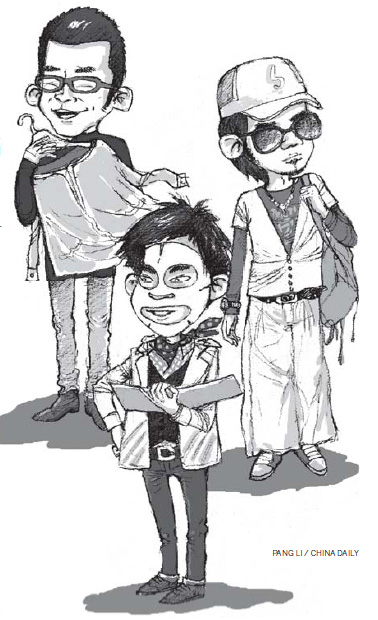Debate: Metrosexuals

Are today's young men less masculine than their predecessors? If the answer is yes, then what is the reason for that? A professor and a freelance writer provide us with their insights into the phenomenon.
Li Wendao: Gender division can still be restored
China's booming men's skincare market signifies the emergence of metrosexuals in the country. The continuing rise in the number of such men has overturned the traditional view that skincare is exclusively for women and sparked a debate on why more young Chinese men today appear gender neutral.
Being gender neutral is more than a trend. It reflects the changing behavior of an increasing number of young men and should be seen as a social phenomenon. Promoters of the gender-neutral concept (or trend) argue that such men reflect individuality, "narrow the gender gap" and eliminate gender prejudices. Some even say that the gender-neutral group is more competitive and creative.
Studies show that people with the combined characteristics of men and women are more flexible and mentally healthy than either totally masculine men or totally feminine women. Gender-neutral individuals, however, are not part of that category.
In Bem Sex Role Inventory, Sandra Bem challenges the traditional dualistic gender theory and classifies four gender-role orientations: masculine, feminine, androgynous as distinctly masculine and feminine, and undifferentiated, that is, neither specifically masculine nor feminine. The fourth applies to gender-neutral individuals, for they obscure gender roles and obstruct personal and social development.
The rise in the number of gender-neutral people can be attributed to several factors. First, many of the gender-neutral individuals were born in the 1980s or 1990s, and since they grew up after China introduced the family planning policy, most of them are the only child of their parents.
In traditional (conservative) families, the preference for sons, especially an only boy in the family perhaps outweighs everything else. Besides, given the trend of gender equality, many single-child parents push their daughters to become tough and independent like boys. Hence, the way a family treats a boy or a girl is becoming similar, blurring gender differences.
In addition, since an only child has no brother or sister, they do not acquire habits or develop traits that differentiate them from the other gender. No wonder many people say that compared to the older generation today's young men are less masculine and women less feminine.
 0
0 







Go to Forum >>0 Comments